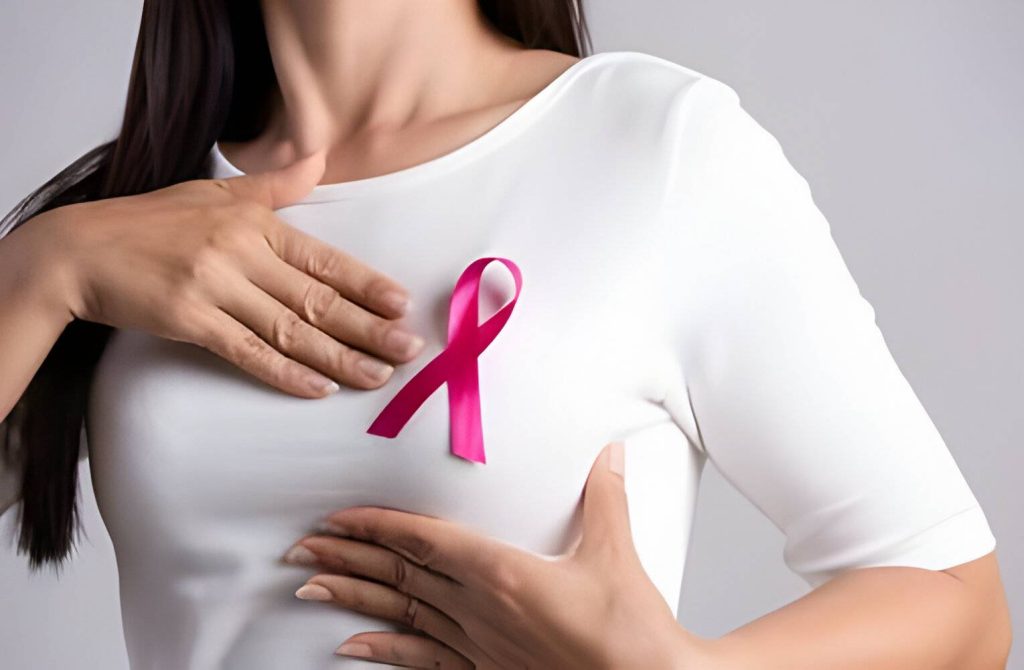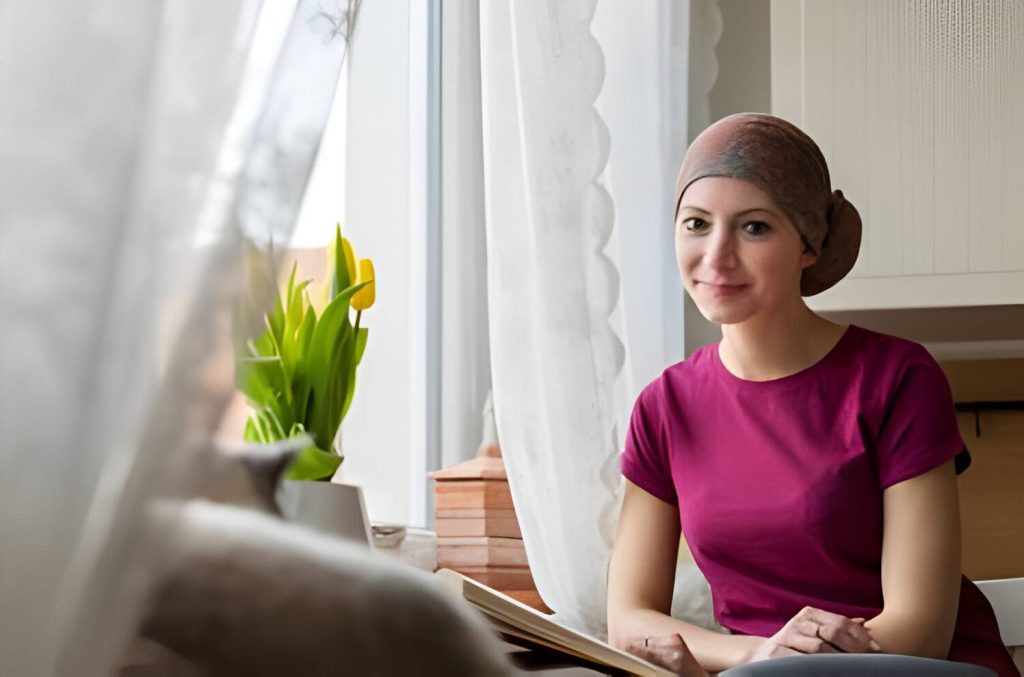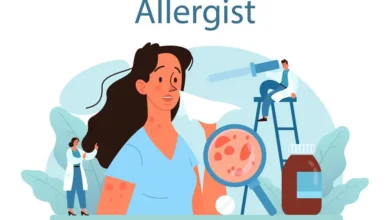Last chance: Bleeding Breast Cancer: What You Need to Know!
Donate Your Fashion For a Cause: Breast Cancer Clothing Drive

Overview of breast cancer types:
A formidable adversary that has touched the lives of countless individuals worldwide manifests in various forms that differ in their characteristics and treatment approaches. From the well-known invasive ductal carcinoma to the more elusive lobular carcinoma, each type presents unique challenges and considerations for patients and healthcare providers alike.
However, amidst the complexity of these distinctions lies a shared goal: to raise awareness, offer support, and foster hope in the face of this insidious disease. Join us on a journey through the diverse landscape of breast cancer types as we unravel their nuances, explore emerging research findings, and shed light on how initiatives like clothing donations can make a tangible impact on those battling cancer. Let’s delve into this intricate tapestry of knowledge and compassion to empower ourselves with information and solidarity in the fight against breast cancer.
The importance of understanding different subtypes :
Understanding the different subtypes of breast cancer is crucial for effective diagnosis and treatment. One lesser-known subtype is bleeding breast cancer, which presents with symptoms such as nipple discharge and skin changes. By recognizing these unique characteristics, healthcare providers can tailor treatment plans for patients with this subtype.
Moreover, raising awareness about different subtypes can also impact support efforts within the community. For instance, arranging clothing donation campaigns tailored for people receiving treatment for breast cancer can offer practical help and emotional comfort. This personalized approach underscores the importance of understanding and acknowledging the diversity within the broader spectrum of breast cancer diagnoses.

A brief explanation of estrogen-positive breast cancer:
Estrogen-positive breast cancer relies on the estrogen hormone for its growth. The cancer cells have estrogen receptors. stimulating their growth and proliferation. Estrogen-positive breast cancer is most common in about 70% of cases.
Treatment for estrogen-positive breast cancer often includes hormone therapy to prevent estrogen from affecting cancer cells. Medications lower estrogen levels in the body or block estrogen receptors in cancer cells. Developing targeted therapies requires understanding estrogen’s role in fueling breast cancer to improve patient outcomes worldwide.
Berberine as a potential treatment:
Recent studies have shed light on the potential of berberine as a promising treatment for breast cancer. Known for its anti-inflammatory and anticancer properties, berberine has shown great efficacy in inhibiting the growth and spread of breast cancer cells. In particular, research suggests that berberine may be effective in targeting triple-negative breast cancer, a highly aggressive and difficult-to-treat form of the disease.
Furthermore, berberine has been found to potentially help reduce bleeding associated with breast cancer treatment. This is significant as excessive bleeding can lead to complications and impact patient outcomes. By incorporating berberine into treatment plans, healthcare professionals may be able to minimize this side effect, enhancing the overall quality of care for breast cancer patients. As further studies are conducted in this area, the potential benefits of utilizing berberine could revolutionize the approach to treating various forms of breast cancer.
“What is Berberine?” is a query seeking information about a substance called Berberine.
Berberine is a plant-derived compound with potential health benefits, especially for breast cancer. Studies have shown it has anti-cancer properties, making it a potential therapeutic agent in treatment. Recent studies have shown that berberine may possess anticancer properties, with promising results in inhibiting the growth of breast cancer cells. This makes it a valuable addition to conventional treatment methods for those battling this deadly disease.
In addition to its anticancer properties, berberine has also been linked to potential benefits in reducing the bleeding breast cancer associated with breast cancer. Berberine, a natural alkaloid compound, has been shown to target specific pathways associated with blood coagulation and clotting, making it a potential solution for cancer patients undergoing treatment who experience this distressing symptom. Moreover, current research is investigating the effectiveness of berberine as an adjunct therapy to complement traditional treatments, thereby improving outcomes for breast cancer patients.
Given the growing body of evidence supporting the benefits of berberine in combating cancer, it comes as no surprise that there is increasing interest in harnessing its therapeutic potential. From dietary supplements to targeted therapies, the future looks promising for integrating berberine into the arsenal of tools available for managing this complex and challenging disease called breast cancer. As researchers continue to investigate the mechanisms and applications of breast cancer, we may soon witness breakthroughs that have the potential to revolutionize our approach to treatment and care.
Research on berberine and breast cancer:
Recent research on berberine and its potential role in combating breast cancer has generated significant interest in the scientific community. Studies have demonstrated that berberine, a compound present in various plants, possesses anticancer properties that specifically target breast cancer cells. This natural substance shows promise as a therapeutic agent and warrants further research.
One particularly fascinating aspect of Berberine’s impact on breast cancer is its ability to induce apoptosis, or programmed cell death, in malignant cells. This targeted approach could lead to more effective and less harmful treatments for individuals fighting this devastating disease. Furthermore, researchers are investigating how berberine may interact with traditional cancer therapies to enhance their effectiveness and reduce negative side effects. As the scientific community delves deeper into the potential benefits of berberine for treating breast cancer, we may be on the verge of significant advancements in combating this prevalent form of breast cancer.
Possible benefits for the estrogen-positive subtype:
For individuals with an estrogen-positive breast cancer subtype, there are several potential benefits to consider. One key advantage is the targeted treatment options available, such as hormone therapy or medications that specifically block estrogen receptors. This can aid in halting the proliferation and dissemination of cancer cells in a targeted way, potentially improving outcomes.
In addition, having an estrogen-positive subtype may also offer opportunities for more personalized and tailored treatment plans. Advancements in precision medicine and genetic testing enable healthcare providers to understand specific tumor characteristics and design optimized treatments for each patient. This individualized approach can lead to improved quality of life and long-term survival rates for those with this particular subtype of breast cancer.
Furthermore, ongoing research into novel treatments and therapies for estrogen-positive breast cancer continues to provide hope for even more effective and targeted interventions in the future. By staying informed about these advancements and participating in clinical trials, patients with this subtype may have access to cutting-edge treatments that could further enhance their prognosis and overall well-being.
Breast cancer diagnosis stories:
One common thread that ties together many breast cancer diagnosis stories is the unexpected nature of the news. Women frequently experience a range of intense emotions, including shock, disbelief, fear, and uncertainty. The process of receiving a diagnosis can be challenging and frustrating, especially when medical professionals dismiss or overlook symptoms such as bleeding breasts, leading to confusion and uncertainty.
Despite the challenges that come with a breast cancer diagnosis, there is also a sense of strength and resilience that emerges in these stories. Many women find support in their loved ones, healthcare providers, and even strangers who come together to offer comfort and guidance. Moreover, efforts like donating breast cancer clothing offer concrete avenues for people to demonstrate solidarity and aid for those impacted by this illness. These instances of connection and benevolence act as prompts that show that optimism can prevail even during the bleakest moments.
Personal experiences with the diagnosis:
Finding out that I had breast cancer was completely unexpected and overwhelming. The fear, uncertainty, and overwhelming emotions that flooded my mind were almost unbearable. But through it all, I realized the strength and resilience that had been dormant within me. As I bravely faced each treatment session, surgery, and recovery phase, I found a new sense of purpose and determination to fight back against this insidious disease.
One particular experience that stood out to me was the unexpected kindness and support from strangers. Through breast cancer clothing donations and fundraisers for research initiatives, I witnessed the power of the community coming together in solidarity. It gave me hope and renewed my faith in humanity as I navigated through the darkest moments of my journey toward healing. The generosity of others not only provided practical assistance but also served as a reminder that we are never truly alone in our battles against illness.

The impact on individuals and families:
Being diagnosed with breast cancer can significantly affect a person’s life, not only physically but also emotionally and in their relationships. Coping with the uncertainty and challenges of the disease can be overwhelming and lead to feelings of fear, anxiety, and isolation. It’s not just the person with cancer who feels the effects; their loved ones can also feel helpless and distressed as they try to support them through treatment.
One lesser-known aspect of dealing with breast cancer is the financial strain it can place on individuals and families. When someone is receiving medical treatment for breast cancer, they may face a lot of expenses and bills that add to their stress during this difficult time. However, some communities have found a way to support those who are affected by donating specially designed clothing for people who are undergoing treatment or experiencing side effects like bleeding from the affected area. This clothing can provide comfort during a tough journey. By addressing both the emotional and practical impacts of this disease, we can better support individuals and families who are facing these challenges.
The importance of sharing stories for awareness:
Sharing stories is a powerful tool for raising awareness, especially when it comes to important health issues like breast cancer. Personal stories can humanize statistics and medical jargon, making them more relatable and impactful. By sharing the experiences of those affected by bleeding breast cancer, we can shed light on the lesser-known symptoms and encourage early detection.
Furthermore, sharing stories can also inspire action and support within communities. For instance, hearing about someone’s journey with breast cancer may motivate individuals to donate clothing or other resources to support patients undergoing treatment. Performing acts of kindness not only offers practical assistance but also builds a sense of togetherness and comradeship in the battle against cancer. Essentially, sharing our experiences creates a chain reaction of knowledge that has the power to save lives and make a real difference in the healthcare industry.
Support and resources:
The patients often require an extensive network of support and resources to navigate their diagnosis and treatment journey. Apart from medical treatment, emotional support can greatly help individuals deal with the difficulties of any illness. Groups that offer support, counseling services, and online communities can be a great help for people who want to share their feelings, worries, and experiences with others who are going through similar situations. These communities provide a safe space for individuals to find comfort and support from others who understand what they’re going through. These resources are essential in providing comfort, encouragement, and understanding to those struggling with health challenges.
In addition to emotional support, practical resources such as financial assistance programs and transportation services are vital for those undergoing treatment. Many organizations also provide free or low-cost wigs, prosthetics, and specialized clothing for individuals experiencing side effects like hair loss or changes in body shape due to surgery. Furthermore, donations of breast cancer-specific items, such as bras specifically designed for post-surgical comfort, can greatly impact the quality of life for patients during their recovery process.
Clothing donations for patients:
Donating clothing to patients, especially those fighting breast cancer, is incredibly important. Wearing appropriate clothing can significantly impact patients’ emotional and mental well-being during challenging times. Soft fabrics, loose-fitting clothes, and clothes that open in the front can be especially helpful for people who feel uncomfortable or have trouble moving due to their treatment.
Donating clothes is also a way for people to show support and kindness to those fighting breast cancer. By giving gently used or new clothes that are made for people recovering from surgery or dealing with treatment side effects, donors can help improve the lives of patients. Medical expenses can be very expensive, so receiving donated clothes can help relieve some of the financial stress associated with buying clothes needed during treatment.
Online support groups like My BC Team
For individuals navigating the challenging path of breast cancer, online support groups like My BC Team can offer valuable assistance. These communities connect individuals facing similar challenges, offering a sense of camaraderie and empathy that may be hard to find elsewhere. My BC Team provides a secure environment for sharing experiences, seeking guidance, and finding solace in the knowledge that one is not alone in their journey.
An exceptional feature of My BC Team is its emphasis on empowering members to assist each other through various endeavors, such as coordinating donations of clothing or sharing resources for managing specific symptoms like bleeding in breast cancer. These collaborative actions not only deliver practical aid but also nurture a spirit of togetherness and support within the group. By uniting to aid one another, members not only receive crucial support but also actively participate in building a network of compassion and kindness that transcends physical boundaries.
Access to personal stories for empowerment:
Access to personal stories can be a powerful source of empowerment, especially for those facing challenges such as breast cancer. Hearing real-life experiences from others who have gone through similar struggles can provide comfort, inspiration, and a sense of solidarity. These stories offer valuable insights into the emotional journey of individuals dealing with the disease, shedding light on both the struggles and triumphs they have faced along the way.
Let me share an inspiring story with you about a courageous woman who spoke up about her experience with breast cancer. She had bleeding from her breast, which is not a well-known symptom of breast cancer. By sharing her story with others, she encouraged them to take their health seriously and seek medical attention when needed. Her story has also inspired many people to be proactive about their healthcare. Additionally, there are initiatives such as donating clothes for breast cancer patients, which remind us of the strength and resilience that can come from personal battles with illness.
Ultimately, access to personal stories serves as a reminder that no one is alone in their journey and that there is always hope for recovery and growth. By sharing these narratives openly and honestly, individuals can find strength in vulnerability and connect with others on a deeply human level. Empowerment through personal stories is not just about finding solace in shared experiences but also about harnessing collective strength to navigate life’s challenges with courage and determination.
Awareness and support are crucial.
Breast cancer is a serious issue, and it’s important to raise awareness about it so that more people can understand how it affects those who have it. Although people often talk about detecting it early, it’s also crucial to address how it makes people feel emotionally. This is where support groups and counseling services come in. Support groups are essential for coping with the emotional impact of a breast cancer diagnosis.
In addition, it’s important to know about lesser-known aspects of breast cancer, such as bleeding from the nipple, which can be a symptom of the disease. Being aware of these symptoms can help people detect breast cancer early and get the medical attention they need. It’s also helpful to donate clothing to organizations that support breast cancer patients, as it can make a big difference in their lives by offering practical assistance and emotional support during their journey toward recovery.
Conclusion
If you experience bleeding from your breast, it can be a cause for concern and should not be ignored. This symptom may indicate an underlying issue, such as breast cancer, which requires immediate medical attention. It’s important to know what can cause bleeding in the breast and to seek professional help from a healthcare provider if you experience this symptom. Early detection and treatment are crucial for a better chance of recovery from breast cancer. Being mindful of your health and taking prompt action if you notice any changes in your body can significantly improve your overall well-being. Don’t hesitate to schedule a screening or speak with a healthcare professional if you have any concerns about bleeding from your breast.



